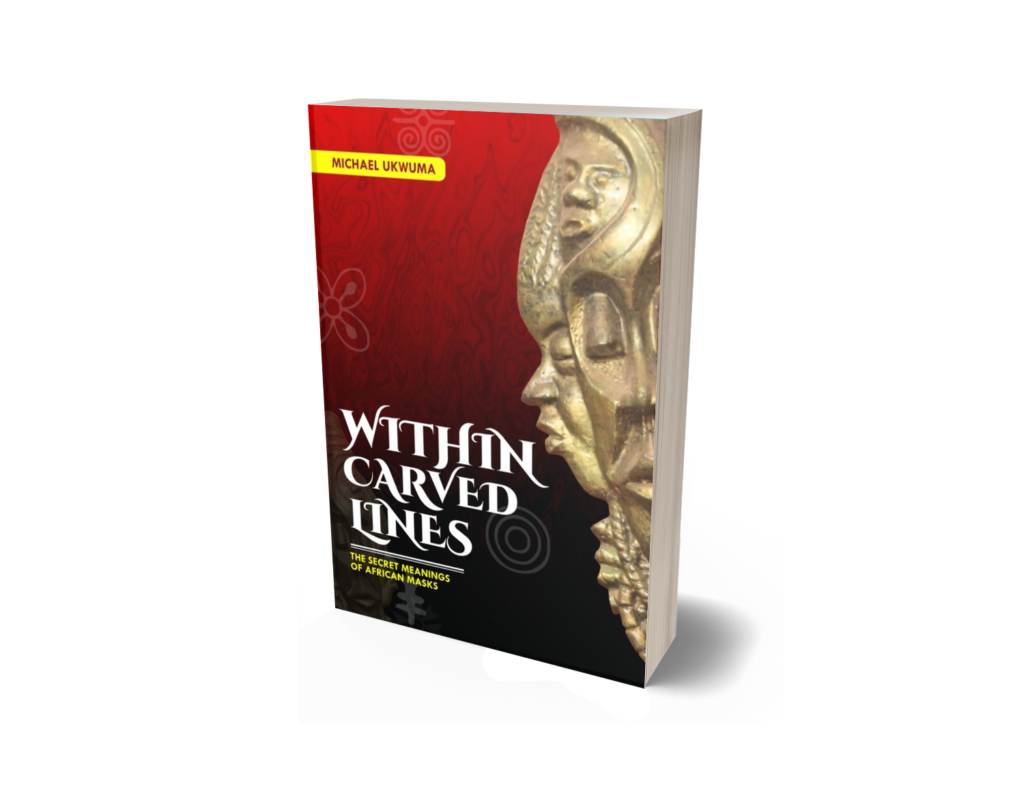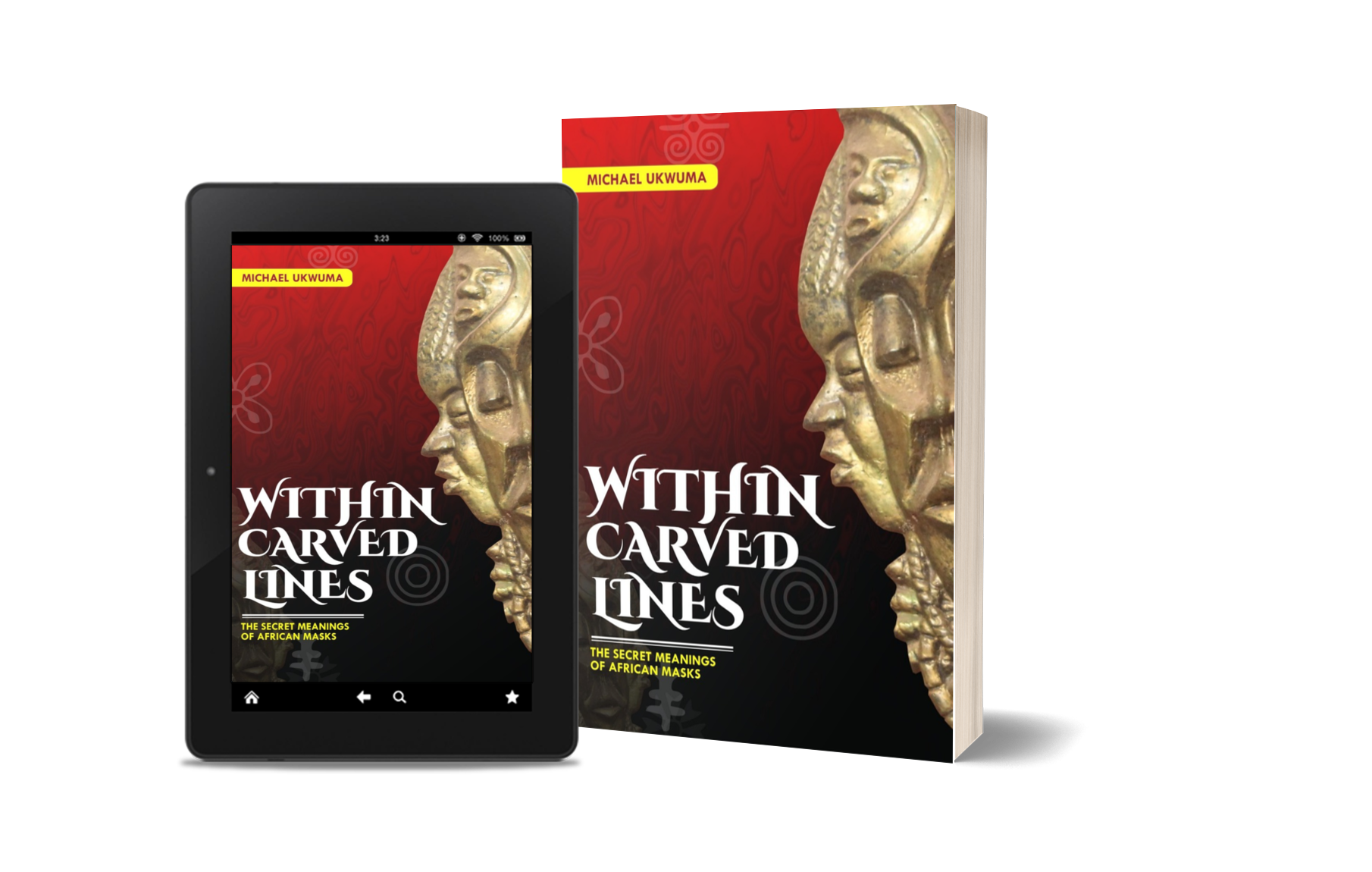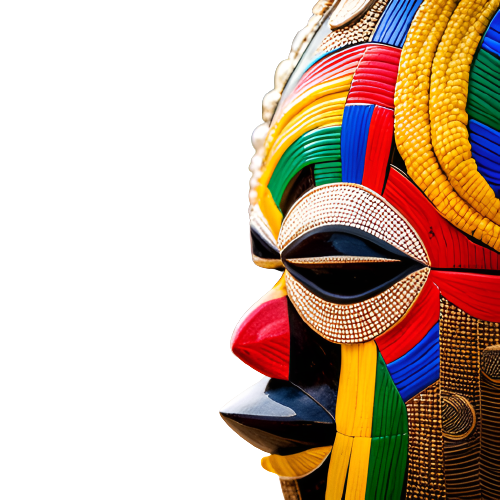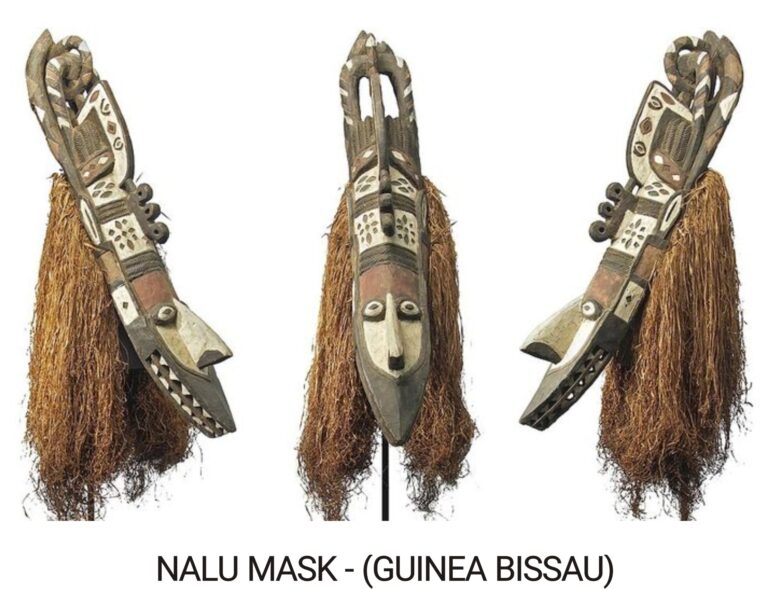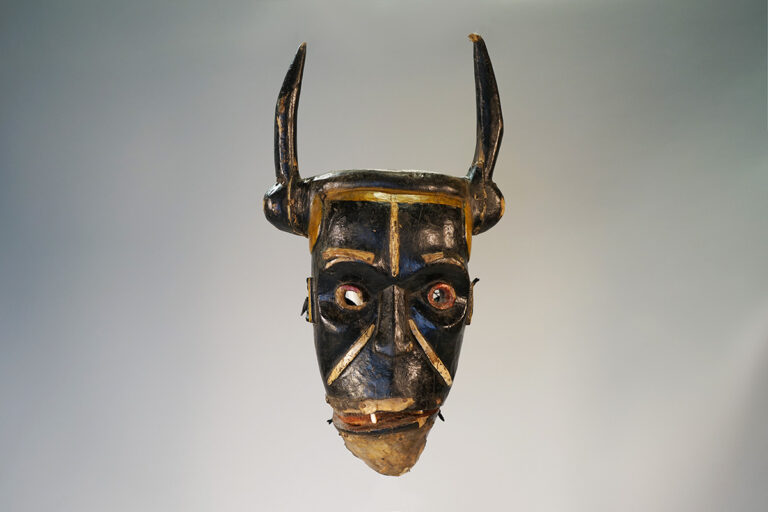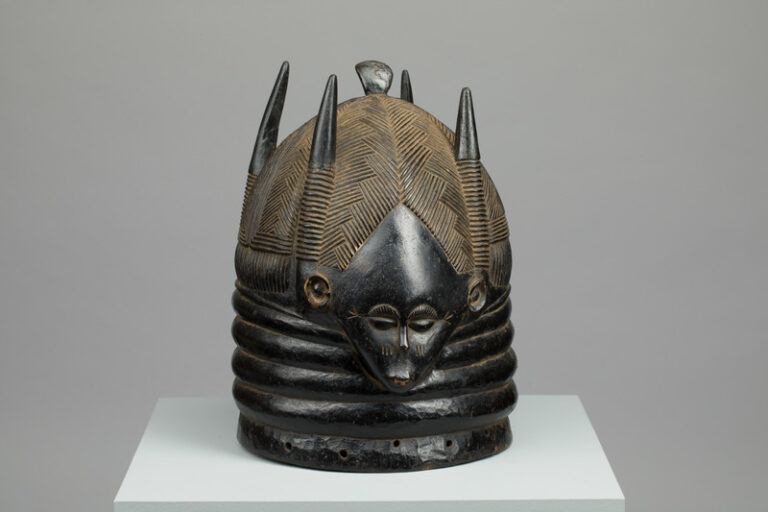Book: Within Carved Lines | The Secret Meanings of African Masks
All that can be said cannot be seen. All that can be seen must never be said.
About the book...
In Within Carved Lines: Secret Meanings of African Masks, Michael Ukwuma invites readers on an extraordinary journey into the heart of African artistry and spirituality. This captivating book transcends the mere appreciation of African masks as aesthetic objects, diving deep into the hidden symbolism, profound meanings, and cultural significance embedded within each meticulously crafted piece. Through Ukwuma’s insightful exploration, readers are introduced to a world where art is not just decoration but a living testament to cosmology, tradition, and belief—a rich tapestry that reflects the soul of African societies.
To buy a copy of this book, just scroll down to this page’s end!
African masks have long fascinated the world with their striking designs and enigmatic presence. Yet, as Within Carved Lines reveals, their true power lies far beneath their surface beauty. Ukwuma masterfully peels back the layers of these creations, exposing the intricate web of meanings woven into their forms. From the vibrant expressions worn during celebratory rituals to the solemn authority they carry in honoring ancestral spirits, masks serve as dynamic tools in African life. They are not static relics but active participants in the cultural, spiritual, and social narratives of the communities that craft and use them. This book illuminates the diverse roles masks play, offering readers a window into their significance across different African cultures.
One of the most compelling aspects of Within Carved Lines is its exploration of the language of symbols encoded within African masks. Ukwuma deciphers these visual narratives, revealing how every curve, color, and carving speaks to a deeper story. Masks are more than artistic expressions; they are storytellers, conveying messages about gods and spirits, moral lessons, and the social structures that define African communities. For instance, a mask with half-closed eyes might symbolize peace and patience, while bold geometric patterns could reflect harmony or authority. Through Ukwuma’s careful analysis, readers learn to “read” these symbols, gaining a richer understanding of the values and beliefs they represent. This symbolic language connects the physical object to the intangible world of ideas and traditions, making each mask a bridge between the seen and unseen.
At the heart of the book lies a profound examination of African spirituality and its inseparable link to mask traditions. Ukwuma highlights the deep reverence for nature, ancestors, and the spiritual realm that permeates these artistic practices. In many African societies, masks are believed to embody spirits or serve as conduits for communication with the divine. During rituals, the wearer transcends their human identity, becoming a vessel for the entity the mask represents—a transformation reinforced by music, dance, and communal participation. This spiritual dimension underscores the masks’ role as more than mere objects; they are sacred instruments that maintain the continuity between the living, the dead, and the supernatural. Ukwuma’s vivid descriptions bring these moments to life, allowing readers to feel the weight of this reverence and the energy of these rituals.
Perhaps one of the boldest contributions of Within Carved Lines is its venture into the often-mysterious world of African secret societies. These groups have long been shrouded in secrecy, their practices guarded from outsiders. Ukwuma approaches this sensitive topic with respect and nuance, shedding light on the complex roles these societies play in preserving cultural heritage and maintaining social order. Masks are central to their rituals, often symbolizing power, initiation, or the presence of ancestral wisdom. While honoring the boundaries of secrecy, Ukwuma offers a thoughtful exploration of how these societies use masks to reinforce community bonds, enforce moral codes, and pass down knowledge through generations. This section of the book is a testament to Ukwuma’s ability to balance curiosity with reverence, providing insight without overstepping cultural limits.
Within Carved Lines is far more than a study of art—it is a journey into the essence of Africa itself. Ukwuma’s writing bridges the gap between scholarly analysis and accessible storytelling, making the book appealing to a wide audience. Art enthusiasts will marvel at the detailed descriptions of craftsmanship, while students of African cultures will appreciate the historical and anthropological depth. Even casual readers with a spark of curiosity will find themselves drawn into the powerful stories told through carved lines and vibrant colors. The book challenges readers to see African masks not as isolated artifacts but as living expressions of a continent’s heritage, spirituality, and resilience.
Grab a copy below
